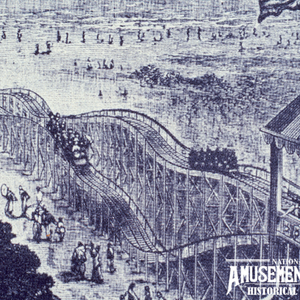Today in History: Switchback Railroad

BoroPark24 Staff
Exactly 140 years ago on this day, June 16, 1884, America’s first roller coaster opened near Boro Park.
New York’s Coney Island has long been synonymous with fun and innovation, and one of its most pioneering contributions to the entertainment world is America’s first roller coaster, the Switchback Railway.
The Switchback Railway was the brainchild of LaMarcus Adna Thompson, a visionary inventor often referred to as the “Father of the American Roller Coaster.” Inspired by gravity railways used in the coal mining industry, Thompson saw the potential for a new type of entertainment ride. In 1884, he made his vision a reality, opening the Switchback Railway on June 16 in Coney Island, which was burgeoning as a leisure and recreation center.
The ride has two parallel tracks, each 600 feet long. The structure is made of wood, and the tracks are laid at a gentle incline. Passengers board the train at the top of the incline and manually push themselves up to the top of the ride. Gravity then drives the train down the slope, reaching a speed of about six miles per hour. At the end of the track, the train switches onto the return track and the process is repeated in the opposite direction, hence the name “switchback railway.”
This primitive ride offered beautiful views of Coney Island’s beaches and attractions along the way, and offered people a new and exhilarating experience. Though it was modest in speed and height compared to modern roller coasters, the switchback railway was a thrilling innovation for its time.
The Switchback Railway was an immediate success. With a fare of 5 cents per ride, it quickly became a highlight of Coney Island, drawing throngs of people eager to experience the novelty of a roller coaster ride.
Although the original switchback railway no longer exists, traces of it remain around the world, as evidenced by the thousands of roller coasters that follow its groundbreaking design.
Photo courtesy of the National Amusement Park Historical Society


